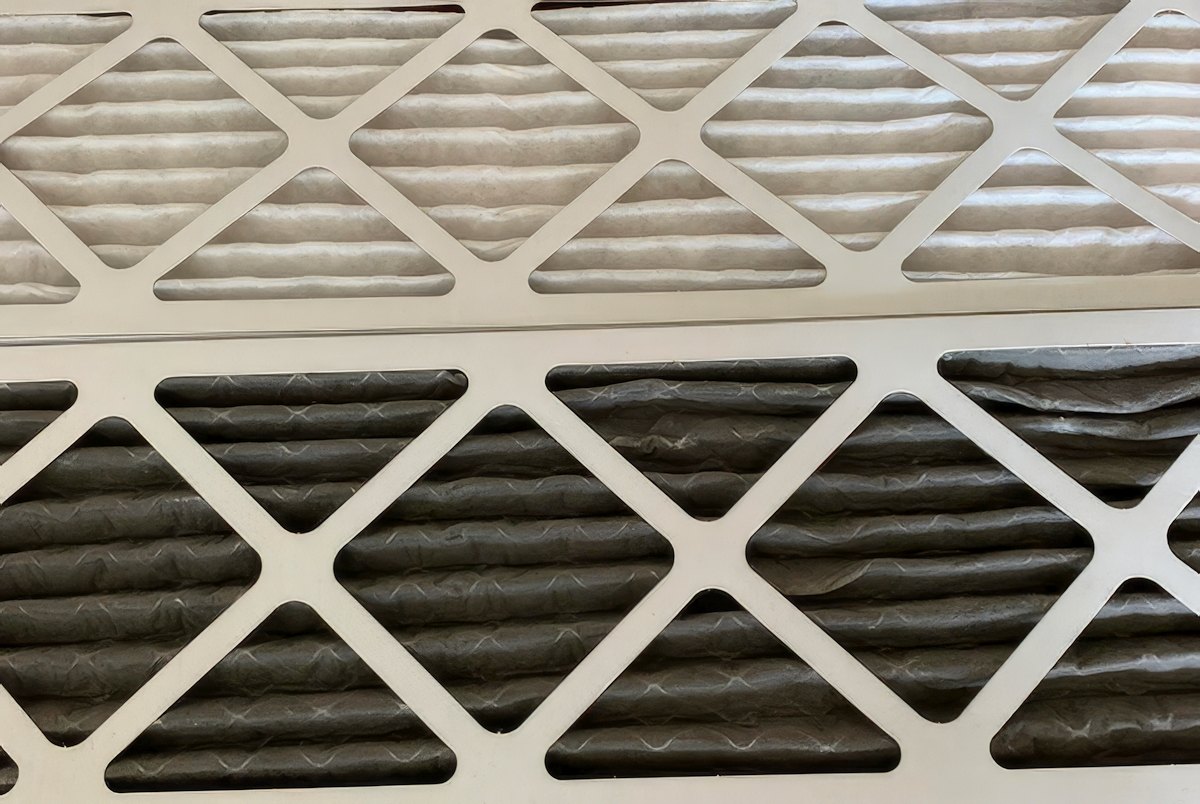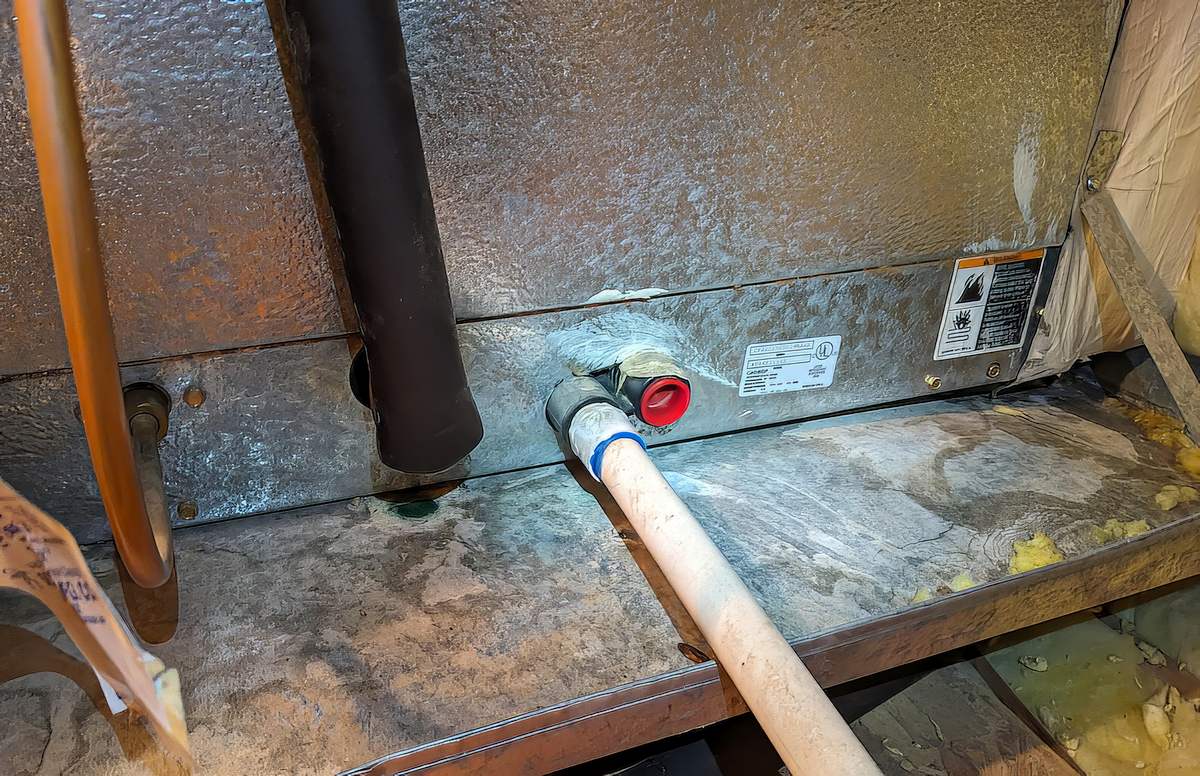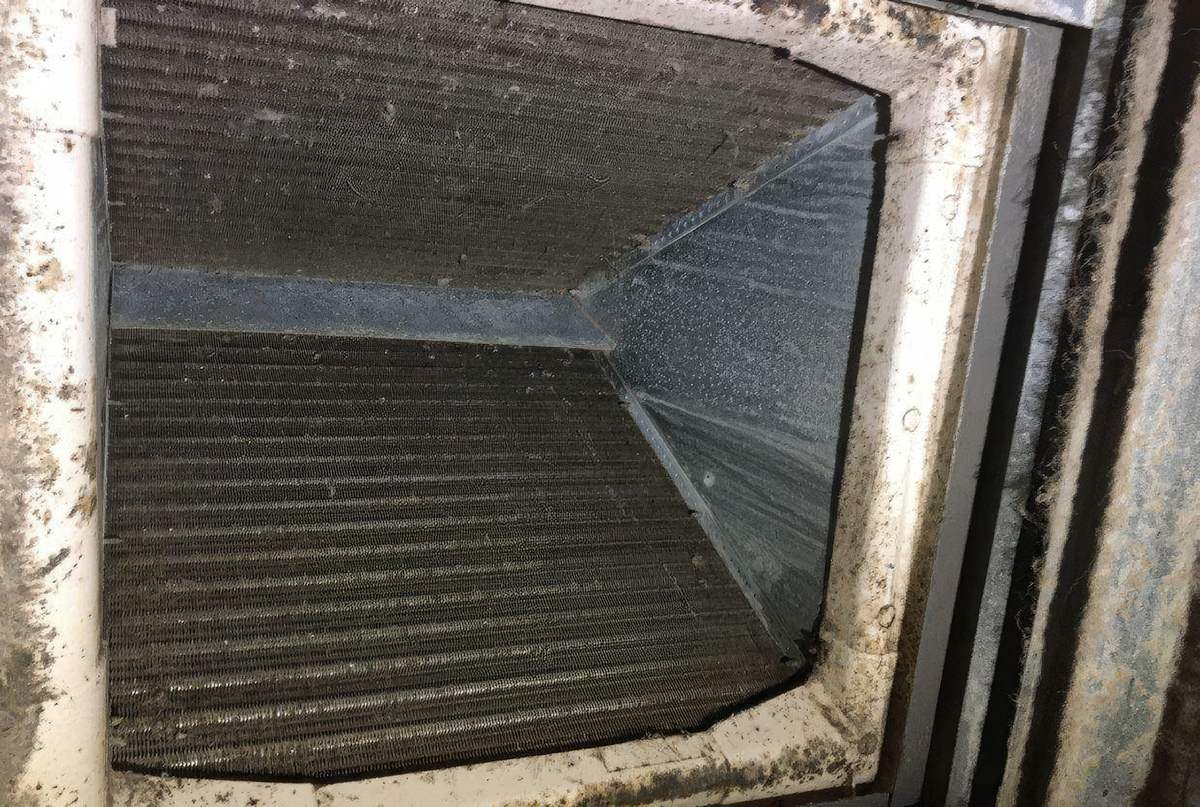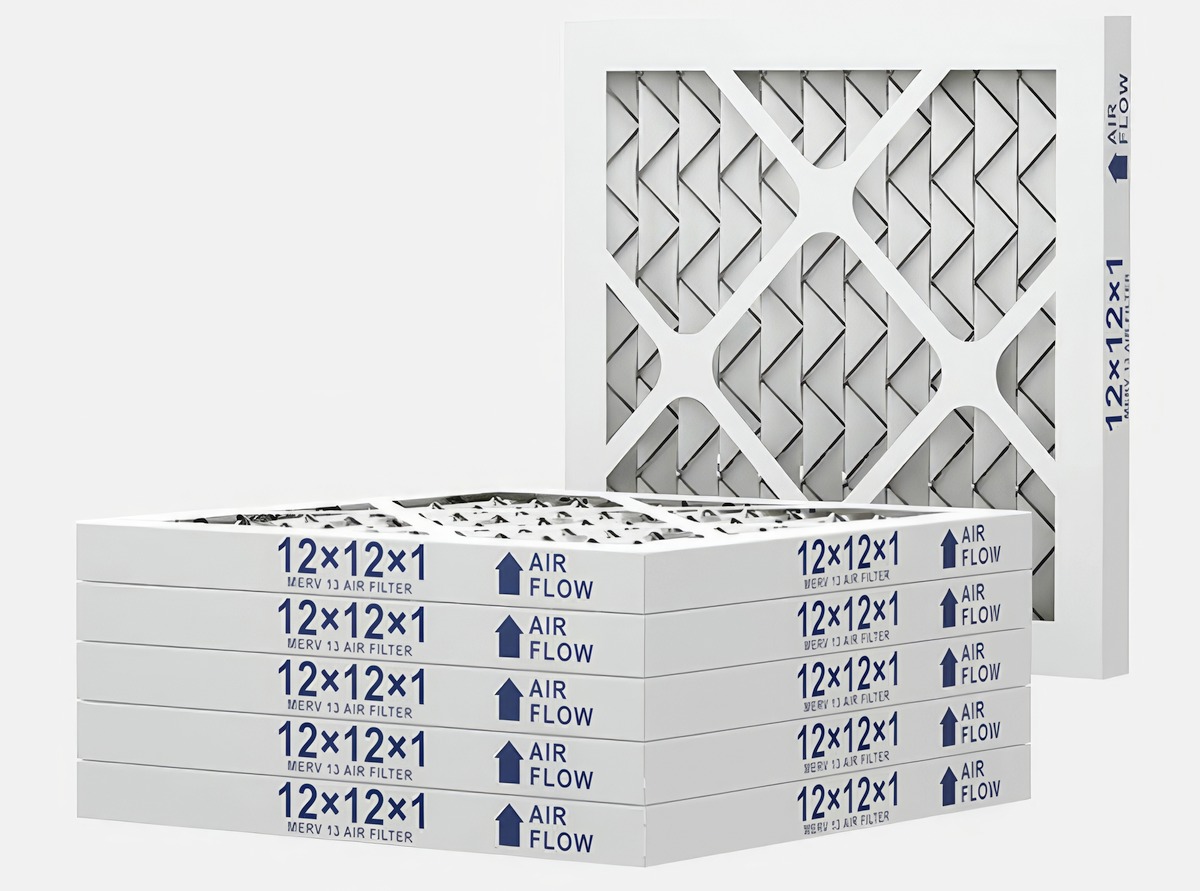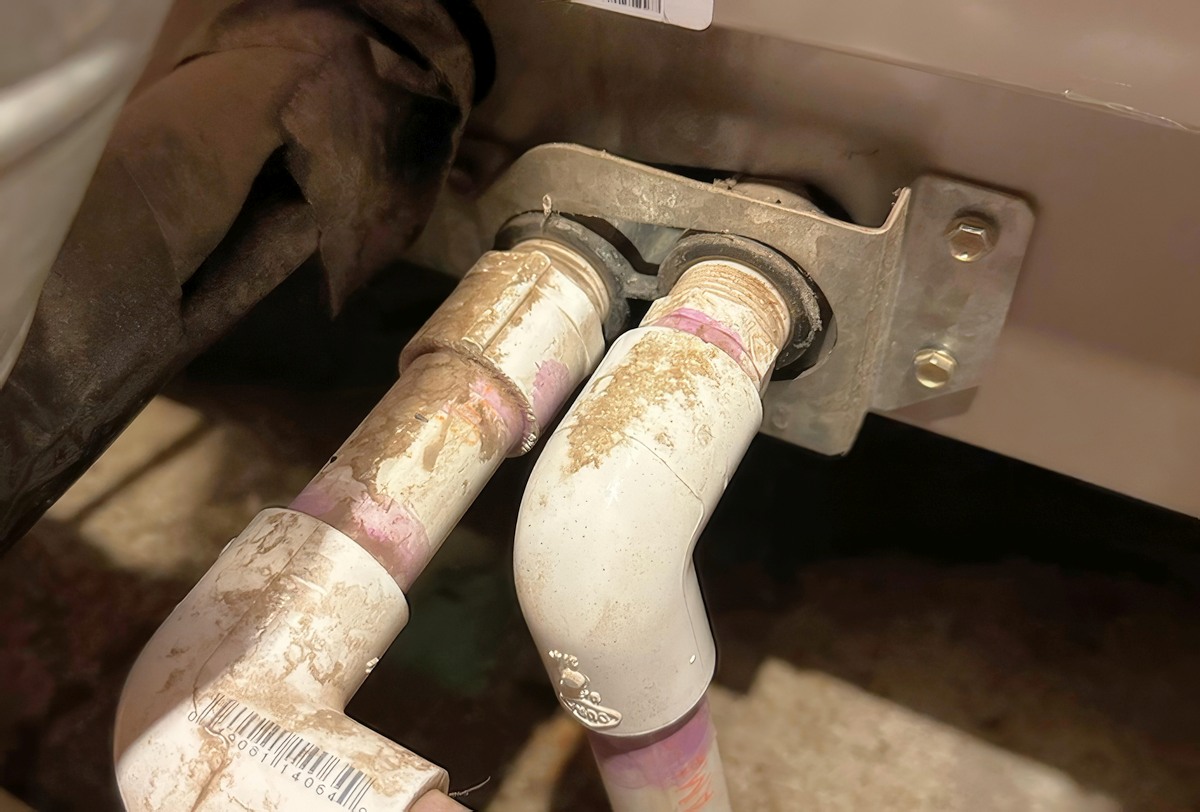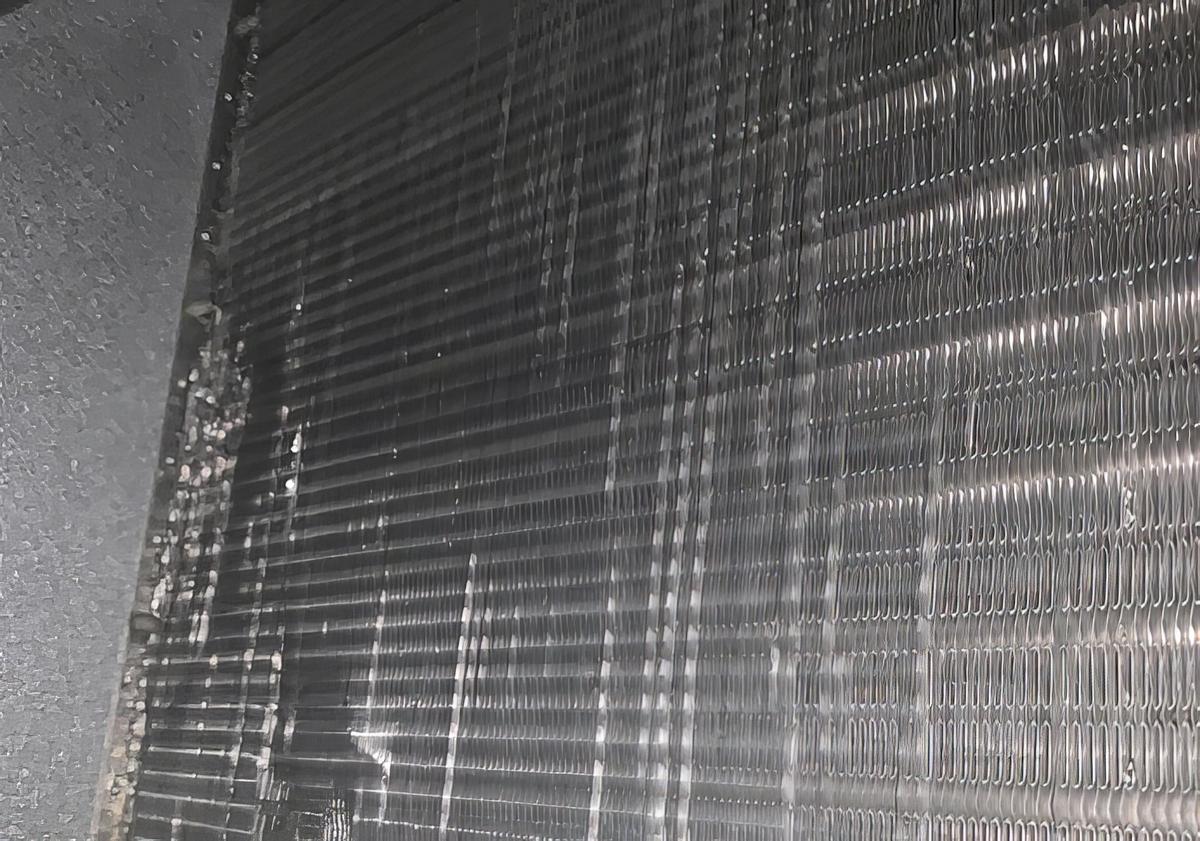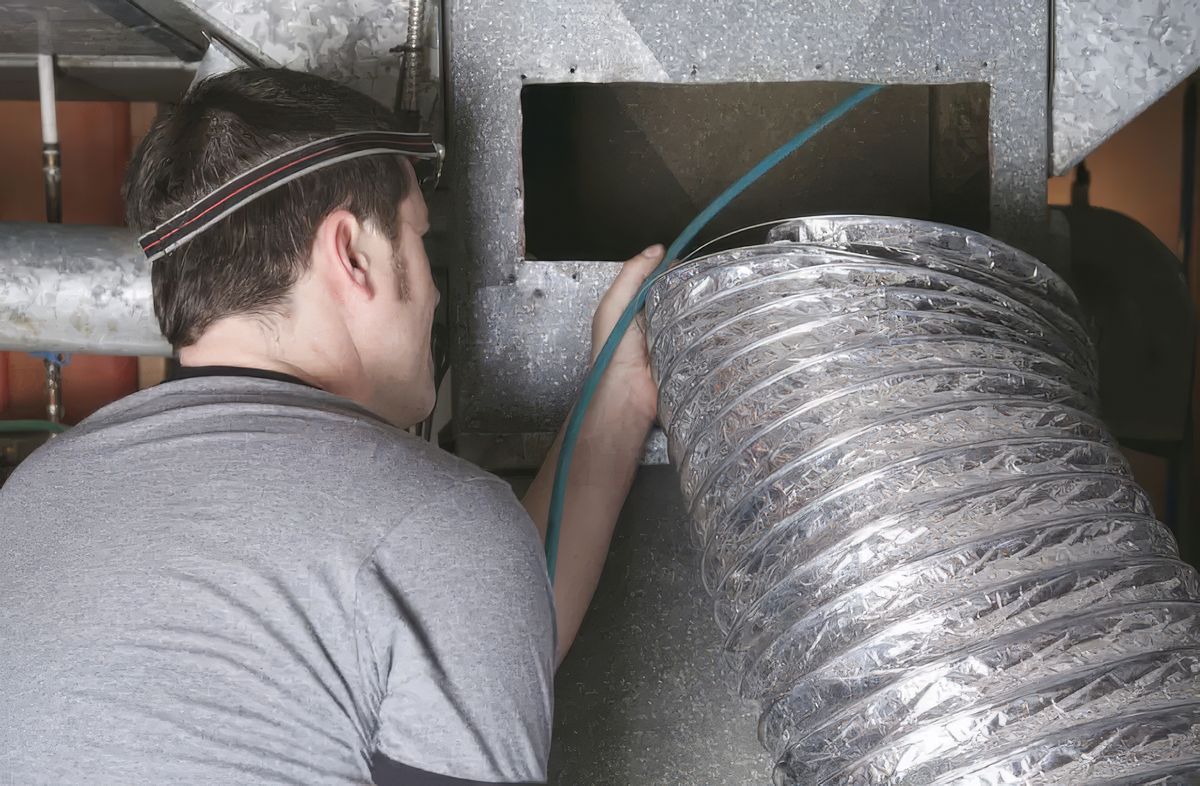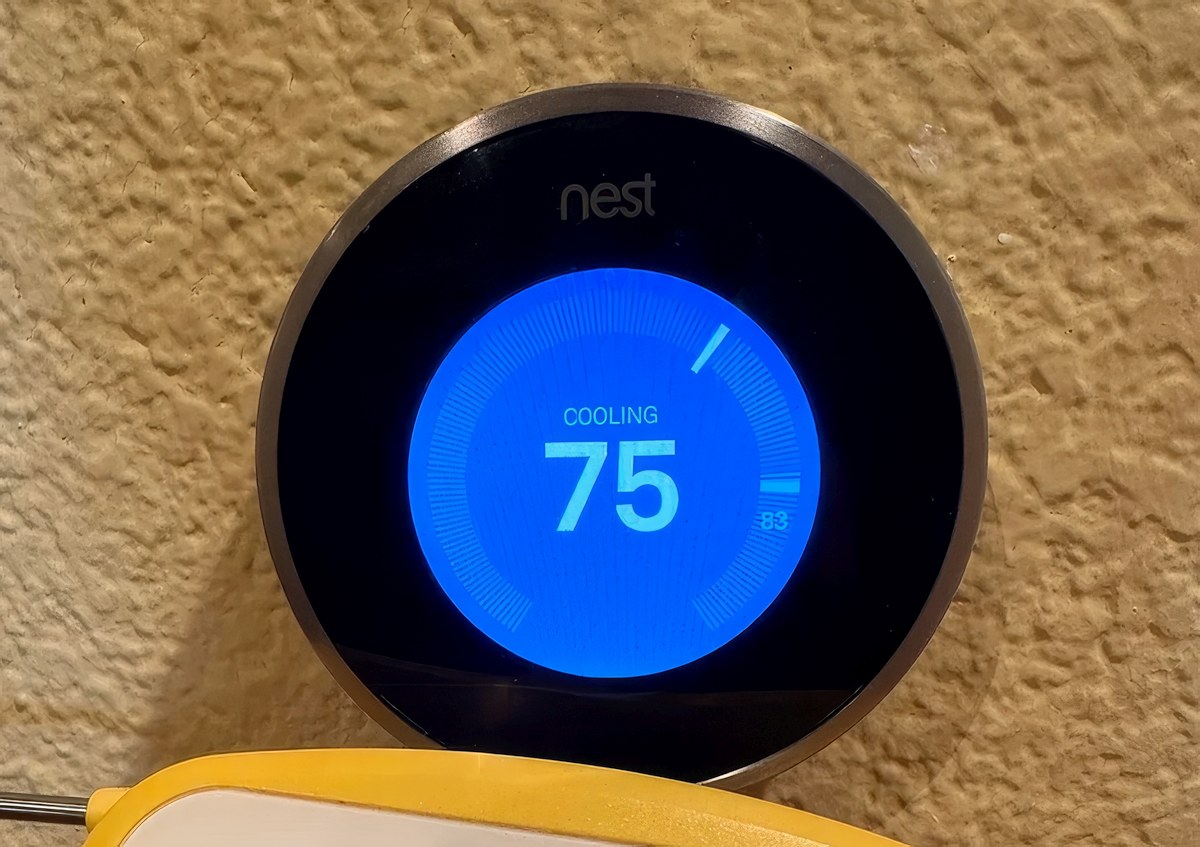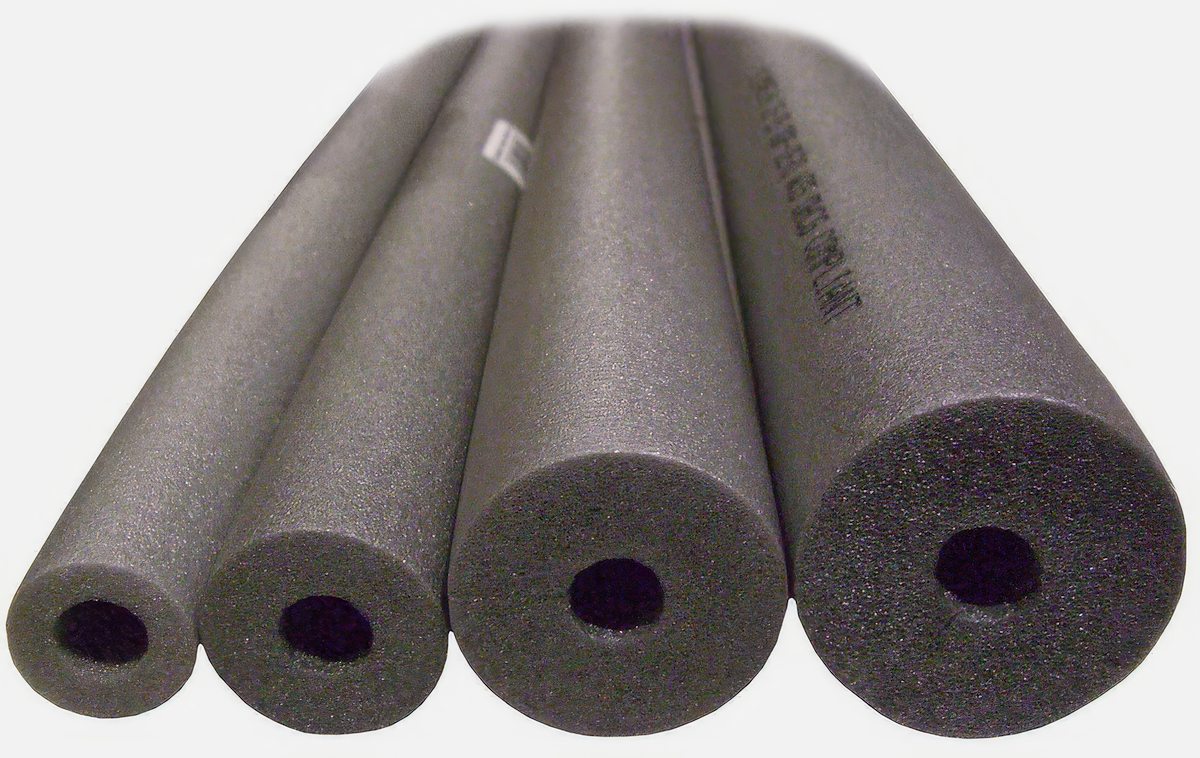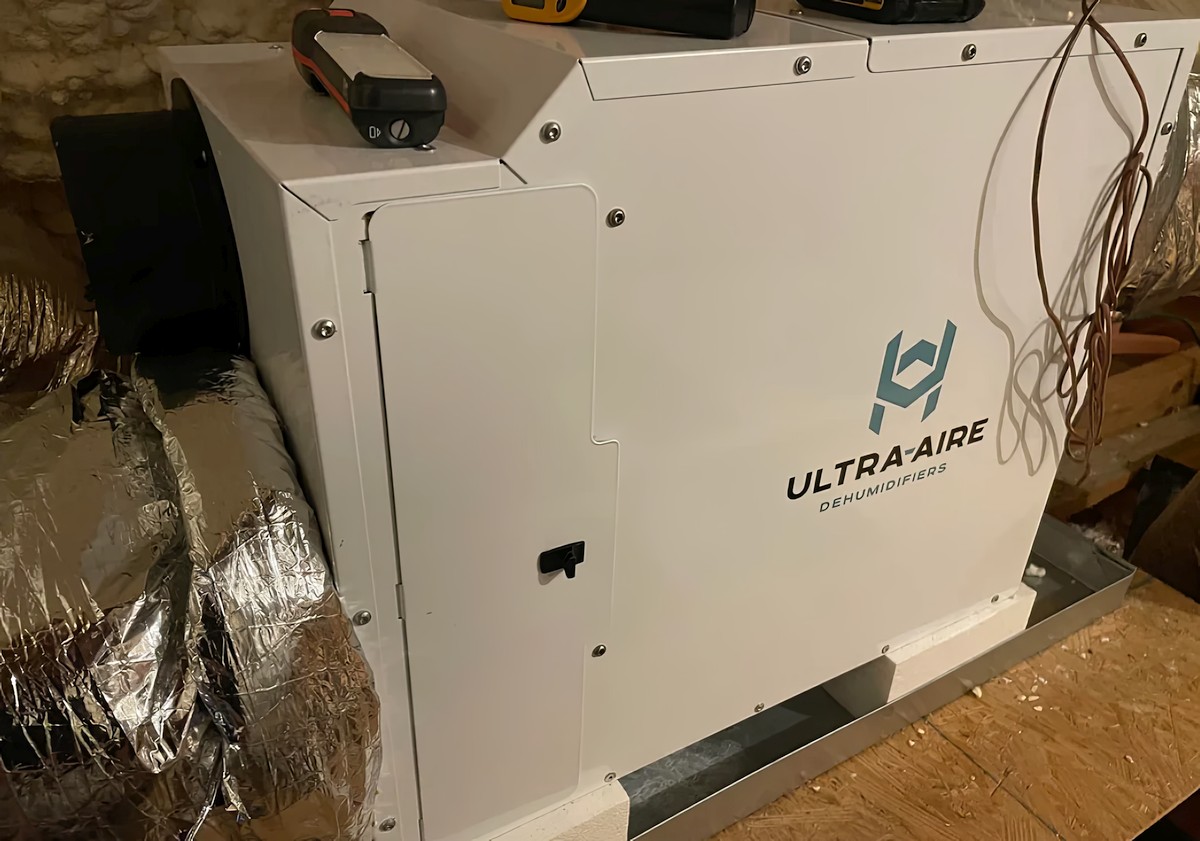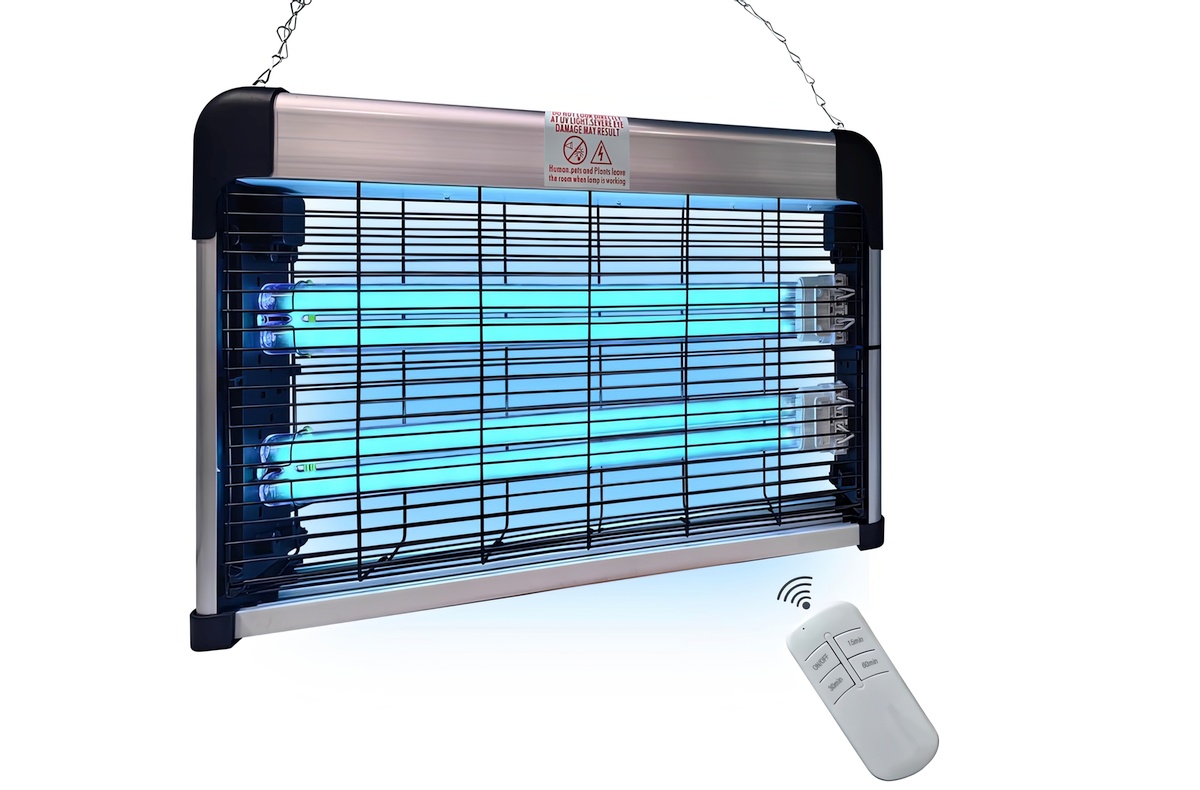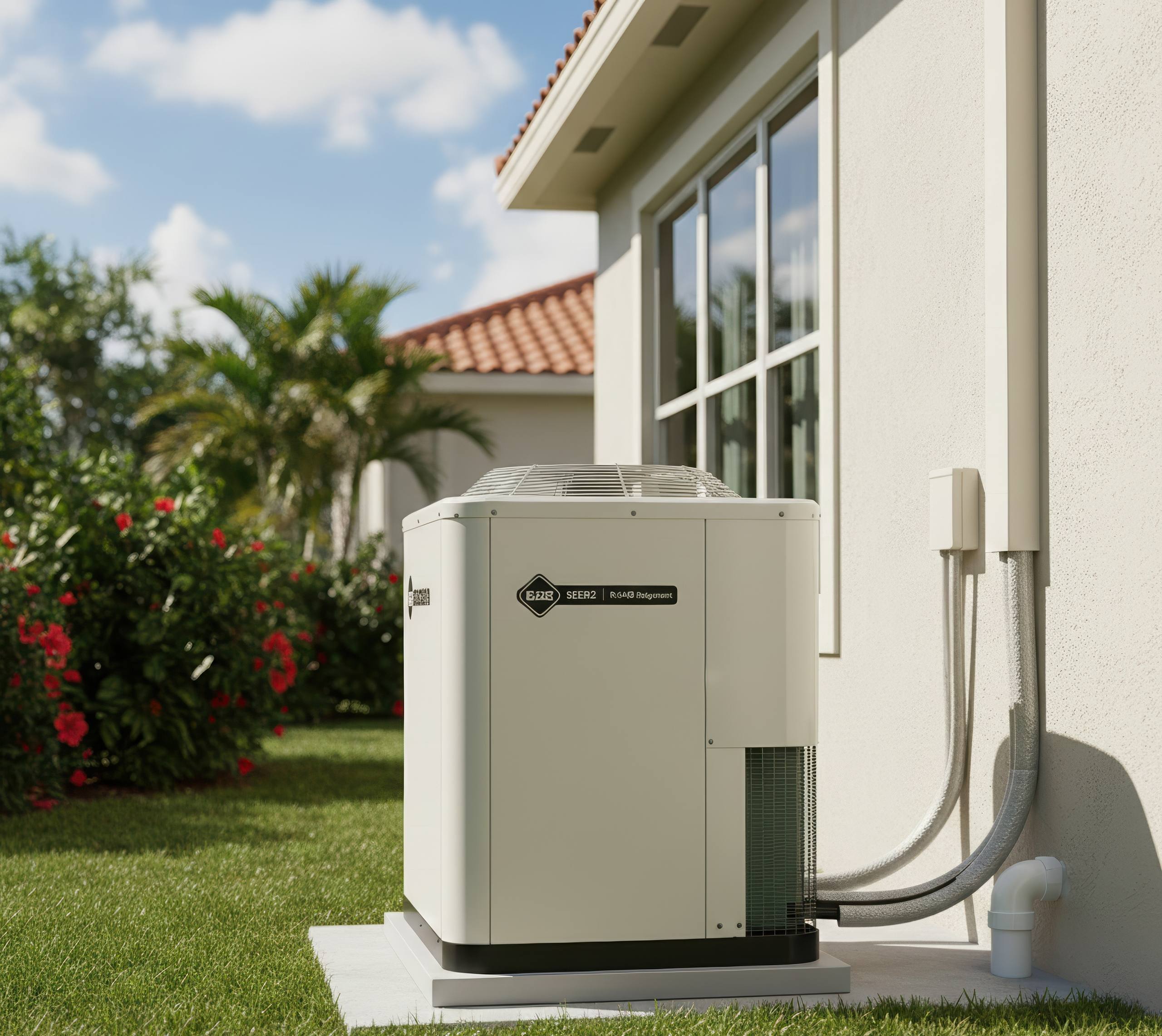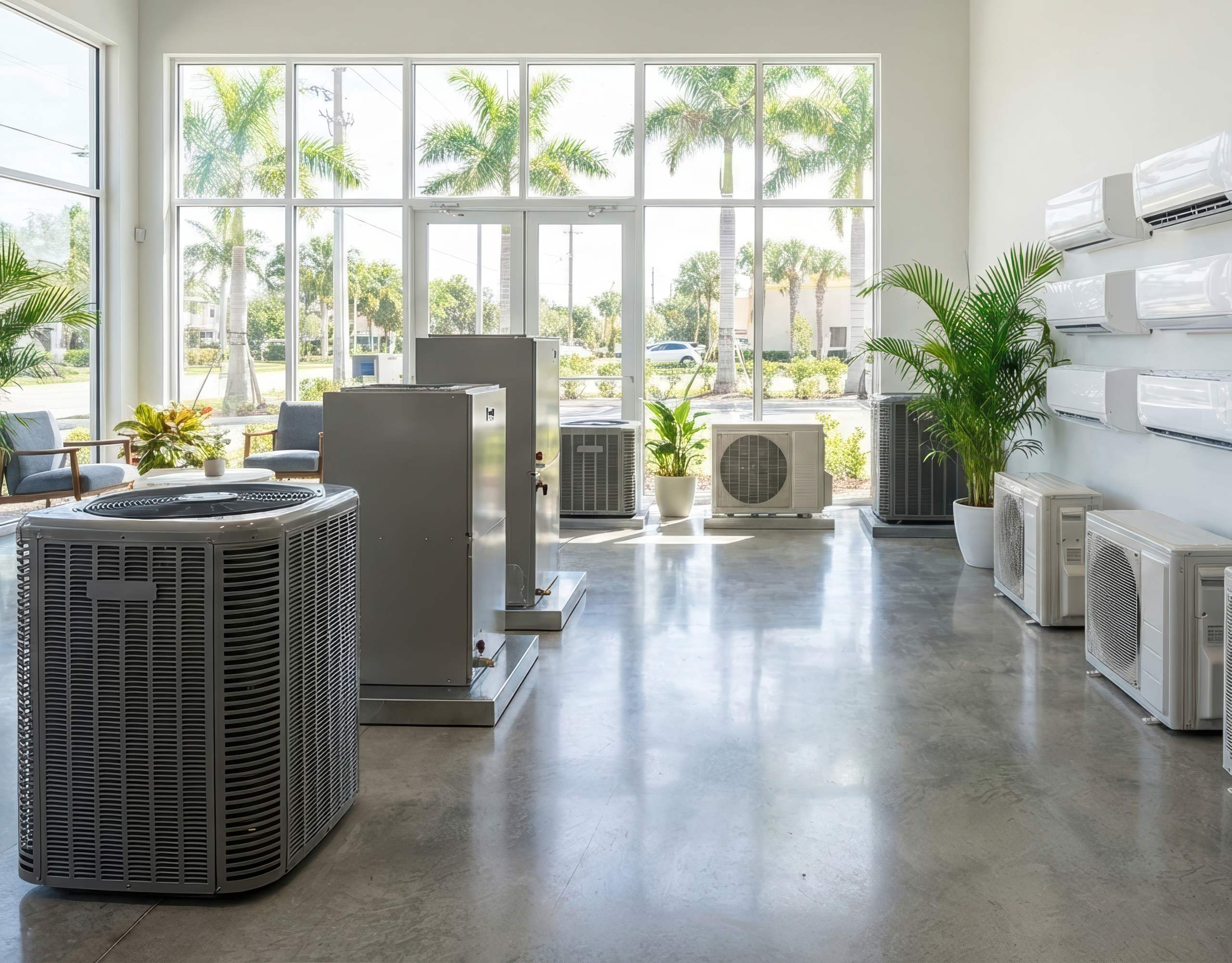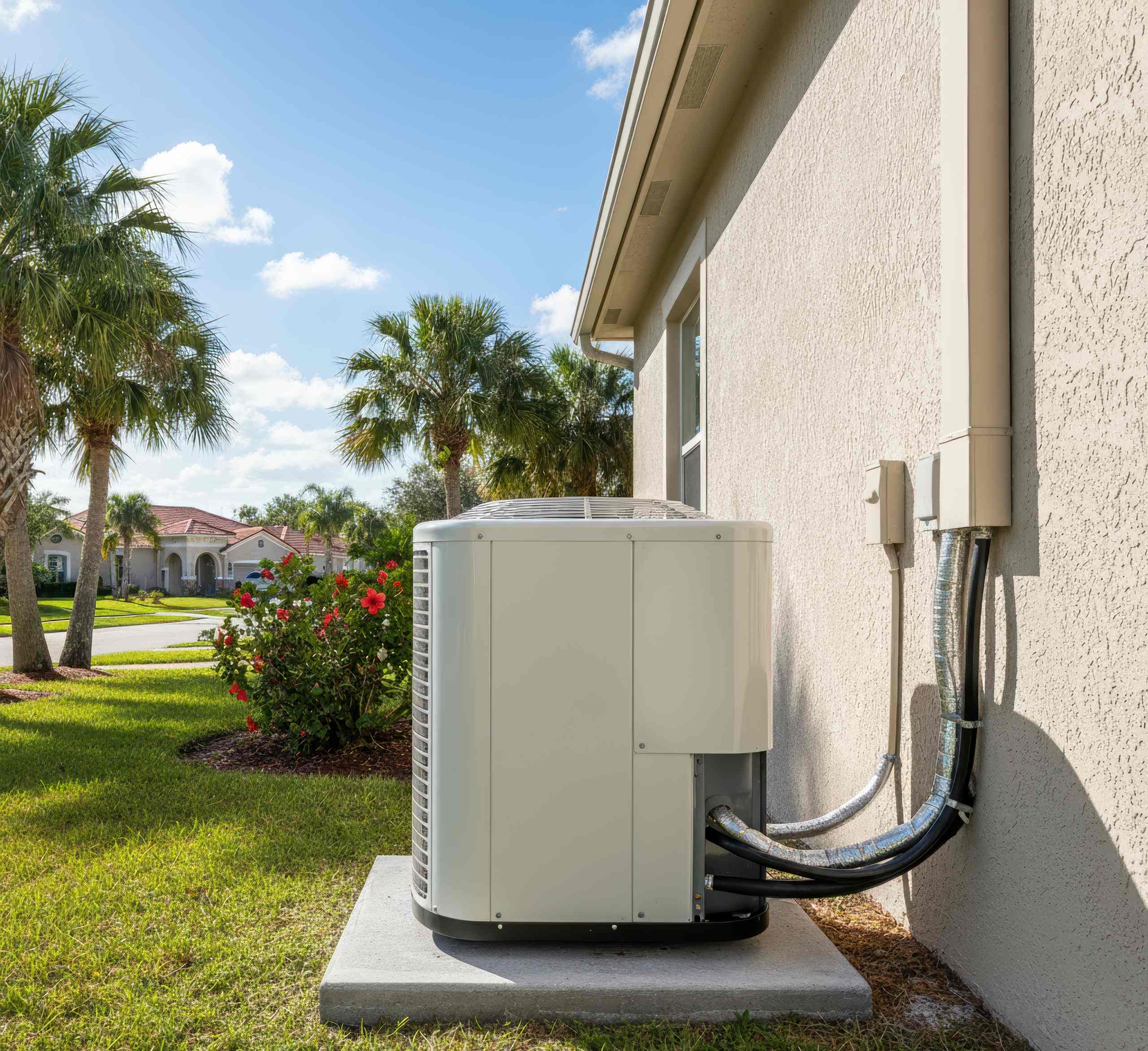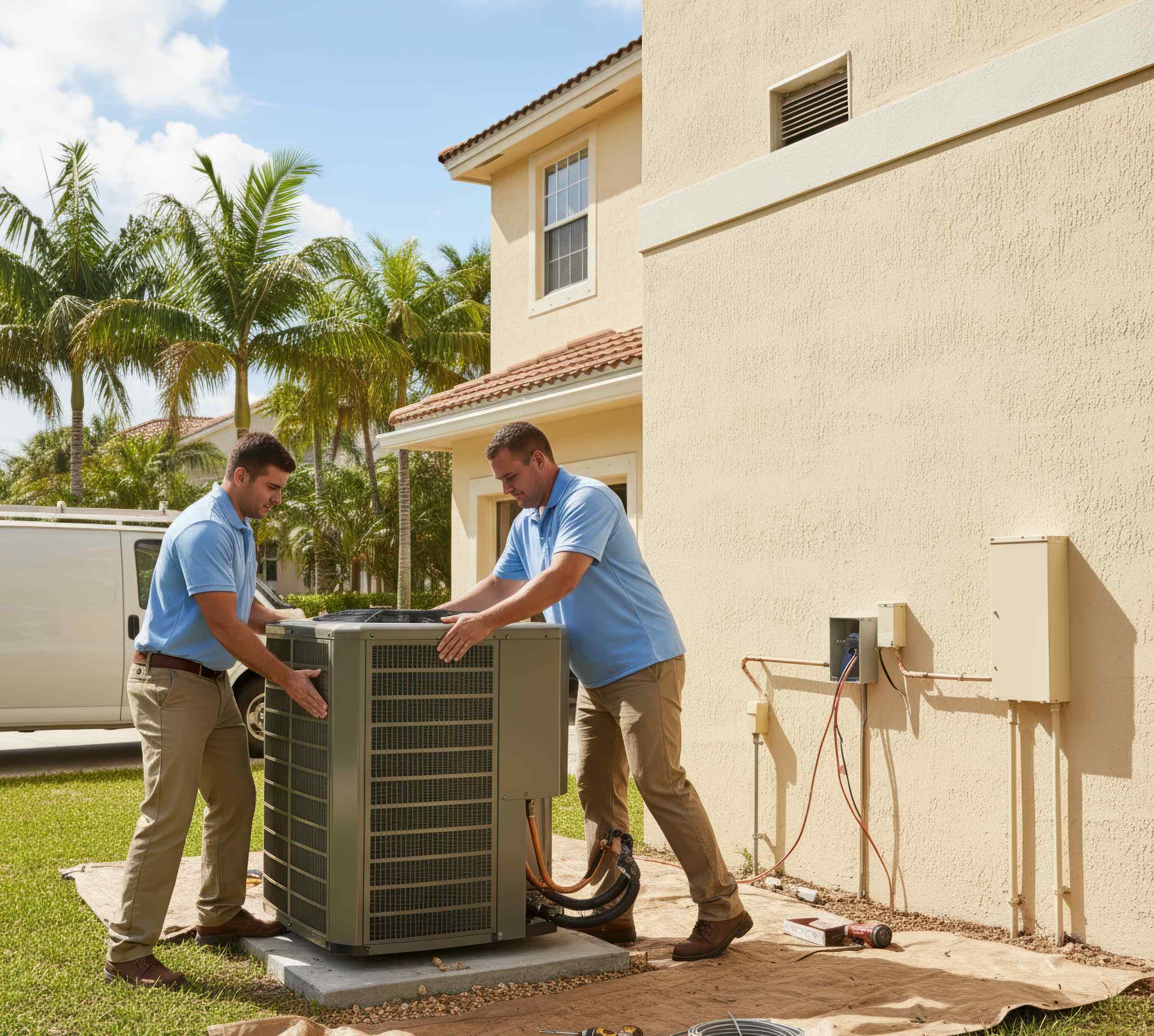All sorts of smells and sounds are possible from air conditioning units. Sometimes, it feels like they’re alive!
Fishy smells, burning or electrical smells, and stale odors are common HVAC problems if systems are not well-maintained—but what causes AC units to smell musty?
This issue most likely relates to the heat and humidity levels in Florida homes, which can be very high if the air conditioning isn’t functioning properly or other conditions exist. Whatever the reason for the issue, the problem needs attention before it starts affecting the indoor air quality and health of your family.
Let’s find out the main reasons for musty AC smells, how to remove musty smells from air conditioners, and how to prevent these problems in the first place…
WHY AN AC UNIT SMELLS MUSTY

An AC unit smells musty usually because of excessive moisture and humidity promoting mold and mildew growth within the cooling system. This could, in turn, be due to blocked airflow from a dirty filter, a full or clogged drain pipe, dirty evaporator coils or another reason.
Don’t let musty smells in AC units go unchecked because they could point to deeper issues that can cause expensive damage to the air conditioning system or even to your family’s health…
STAY COOL ALL YEAR ROUND WITH ONE WAY AIR…
The team at One Way Air installs, services, and repairs all types of air conditioning systems in Southwest Florida. Get in touch with us here for a quote or call 239-233-4356 in emergencies.
COMMON REASONS FOR AN AC UNIT SMELLING MUSTY: DEEPER DIVE
A musty smell from the AC unit is not unusual when you first turn on the system after a period of inactivity but should not persist for long. If it does, you may have a problem.
So, let’s take a deeper look into the main causes of an AC unit smelling musty…
Excess moisture and humidity
Florida’s heat and humidity levels are among the highest in the country. This can instantly create problems for air conditioning systems that must work hard to keep the air cool and free of excessive moisture in homes.

If moisture is not efficiently removed from the inside air by a properly functioning AC system or the unit has not been properly insulated, the humid air can provide a breeding ground for mold and mildew (and musty odors)—as well as impacting comfort levels.
Moisture often builds up in cooling systems due to restricted airflow caused by dirty filters, a malfunctioning blower fan or another reason.
Clogged or dirty air filters
Dirty air filters are one of the main culprits when it comes to troubleshooting AC problems. They can cause many issues due to the restricted airflow that results from trapped dust and dirt: one issue is musty odors.
AC filters should be changed every 1-2 months in Florida, due to the generally high AC usage—more about this below.
Mold and mildew in the ductwork
Mold and mildew thrive in warm, damp, and dark conditions—so, if moisture is not effectively removed from the indoor air, it can form on the ductwork that transports conditioned air around the home. This can result in musty smells blowing into the rooms through the supply vents.
It’s best to perform regular duct checks and duct cleaning every few years but if unexplained musty smells are coming from your central AC, you may need to book an immediate clean.
A full drain pan or clogged condensate line
Both central air conditioners and ductless mini-split systems have drain pans to collect water from the air conditioning process. This is then channeled to the outside of the home by a condensate line.
If the drain pan becomes full and overflows or the pipe is clogged, moisture cannot channel away from the home and, instead, remains inside creating conditions for mold, mildew, and musty smells.
Dirty evaporator coils
Dirty evaporator coils are another common AC issue that can cause a wide range of problems from a frozen AC to poor cooling performance and musty smells.
Dirty coils restrict air from circulating efficiently through the system and the accumulated dirt and debris provide a perfect environment for mold and bacteria to grow when condensation forms on them. This can release a musty odor when the air blows over the coils.
Cleaning the evaporator coils is an essential part of AC maintenance that should be performed regularly—at least once or twice a year.
HOW TO REMOVE MUSTY SMELLS FROM AIR CONDITIONERS
When your air conditioning smells of anything abnormal, a professional should determine the cause of the odor and recommend how to fix the issue. However, you might like to see if any of the following fixes work before calling a pro…
Change the air filter
Simply changing or cleaning the filter may fix musty smell odors. Most filters are disposable but some are washable. Because of the heavy workload for AC systems in Florida homes, filters should be cleaned or changed every 4-8 weeks— more often if you have pets, allergy sufferers in the household or construction work in or around the home.
Depending on the type of central AC installed and recommendations from your air conditioning professionals, consider upgrading to a high-efficiency particulate air (HEPA) filter. These can capture smaller particles, reduce the likelihood of musty odors, and may ease allergy problems. Find out more about cleaning or changing AC filters here.
Clean the AC drain pan and line
If there is a blockage in the condensate line or the AC drain pan is full, you can locate these two components and perform some basic maintenance.
The drain pan is located in the indoor unit, below the evaporator coils. It collects water removed from the indoor air and is usually located on the same side as the air intake. The condensate line is usually a white PVC pipe that connects to the drain pan to channel water away, typically ending near the outdoor condenser unit.
Empty the drain pan if it’s full and try unclogging the drain line with a bleach or vinegar solution. If that doesn’t work, you’ll likely need a professional with specialist tools.
Schedule maintenance to clean the evaporator coils
A typical AC tune-up will include a test, clean, and lubrication of all components in the cooling system, including the blower motor and coils. One of the prime suspects with musty smells is a dirty evaporator coil, which can cause musty air to circulate through the ductwork.
A professional may be able to fix the musty smell problem by cleaning the evaporator coils. Most AC installation companies in Florida also provide AC repairs and maintenance services.
You may read online tutorials about cleaning the coils with a coil cleaner or bleach and water but most homeowners won’t want to risk damage to the AC and will simply call a pro.
Besides, musty smells can be stubborn—just ask this Florida homeowner—and most dedicated AC professionals usually like to get to the bottom of issues before leaving the premises. A professional clean is usually a deeper clean than most homeowners can perform.
Schedule professional duct inspections and cleaning
Duct cleaning is not part of standard AC maintenance but service calls often include duct inspections, especially if the ductwork is suspected of causing a problem.
If the ducts are dirty or moldy due to poor airflow, excess humidity, recent construction work in the home or nearby, or another reason, they will need cleaning by a professional with the right equipment.
During the cleaning process, any damaged ductwork can be fixed and anything that is impeding airflow can be removed. This could fix a musty smell problem in the home but it is also good practice to perform duct cleaning every few years regardless.
Tips for preventing musty AC smells in Florida
To prevent musty smells from building up in your home, do the following:
Schedule regular HVAC tune-ups and inspections
No secret—and we’ve already covered this above. But it’s amazing how many homeowners still neglect this important task (schedule maintenance at least once or twice per year).
Adjust the thermostat settings
Get to know the ideal thermostat settings to keep humidity and moisture out of the home as best you can—this will help prevent mold and mildew from growing.
Use a ceiling fan to improve airflow
Good ventilation and airflow prevent the growth of mold and mildew. Installing a ceiling fan can improve air circulation and home comfort too, while also keeping a lid on energy bills.

Reinsulate your AC if necessary
If your AC was properly installed, it should be well insulated but over time, the insulation materials can degrade. Ensure proper insulation and sealing around your air conditioner (refrigerant lines) to prevent condensation and moisture buildup. This will require help from an HVAC professional.
Install a whole-home dehumidifier
Installing a dehumidifier is an excellent long-term preventative measure for Florida homeowners. A whole-home dehumidifier works with the HVAC system to maintain ideal humidity levels and prevent the moist conditions that promote mold and mildew growth and cause musty odors.
Install a UV light system
Another longer-term solution to prevent musty smells and improve air quality in the home is to install UV lights. These kill bacteria, viruses, mold spores, and other microorganisms, working with the HVAC system to hinder the growth of mold and mildew.
FAQs
Dirty sock smells from the AC inside the home are similar to musty smells and usually result from excessive moisture and humidity promoting mold and mildew growth within the cooling system. The reasons for this are usually related to the filter, evaporator coil, drain pan/condensate line or ductwork.
Running the AC fan alone serves little purpose other than to circulate the air that’s already in the room/home. It has little noticeable effect on humidity. More about this here.
Strange AC sounds like buzzing, rattling, clicking or running water sounds are caused by a variety of reasons that usually require professional troubleshooting.
Most problems associated with AC units do not require a replacement. The exception may be if you have an expensive issue like a compressor, evaporator coil or refrigerant leak problem that can’t be fixed and your AC is already more than 8-10 years old.
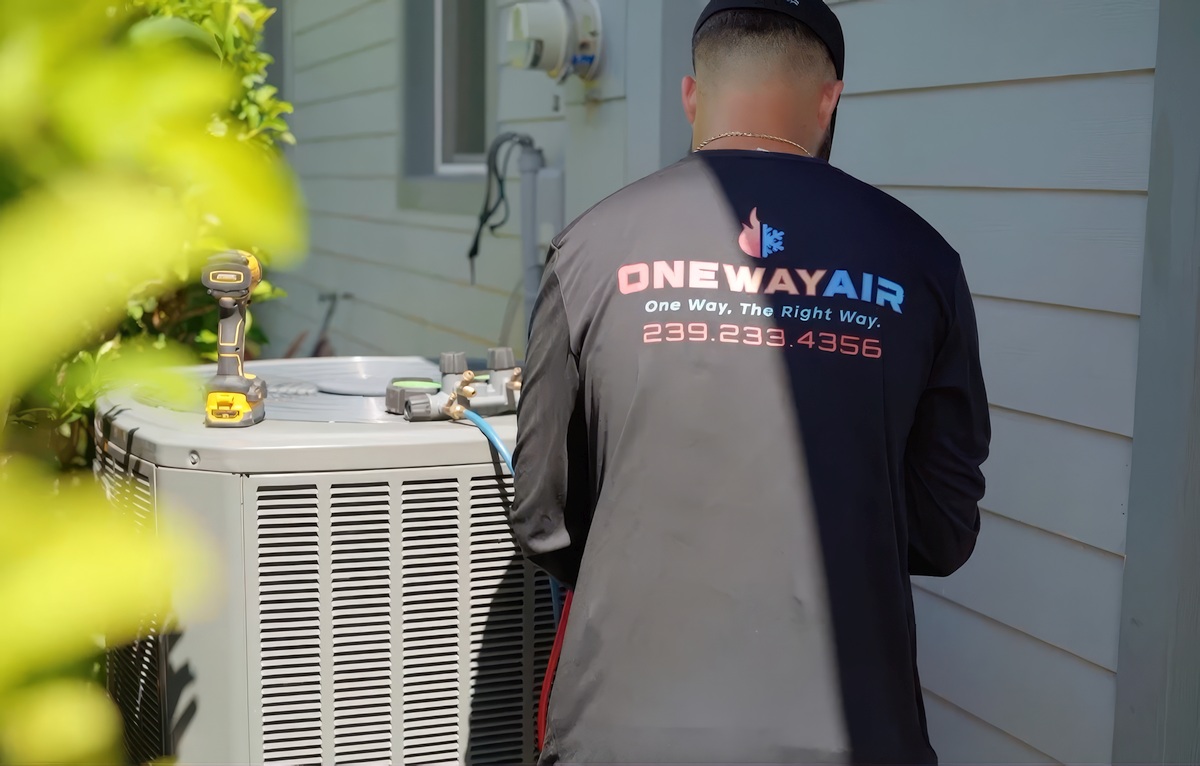
BOOK AN AC TUNE-UP TO PREVENT MUSTY ODORS
Homeowners must pay the high costs of AC in Florida. So, looking after your system makes good common sense.
The best way to prevent strange smells, noises or other cooling issues with your AC is to schedule regular tune-ups with professionals.
Most problems can be fixed relatively easily if they are caught early enough. Contact an AC professional at One Way Air for an inspection and tune-up today.

